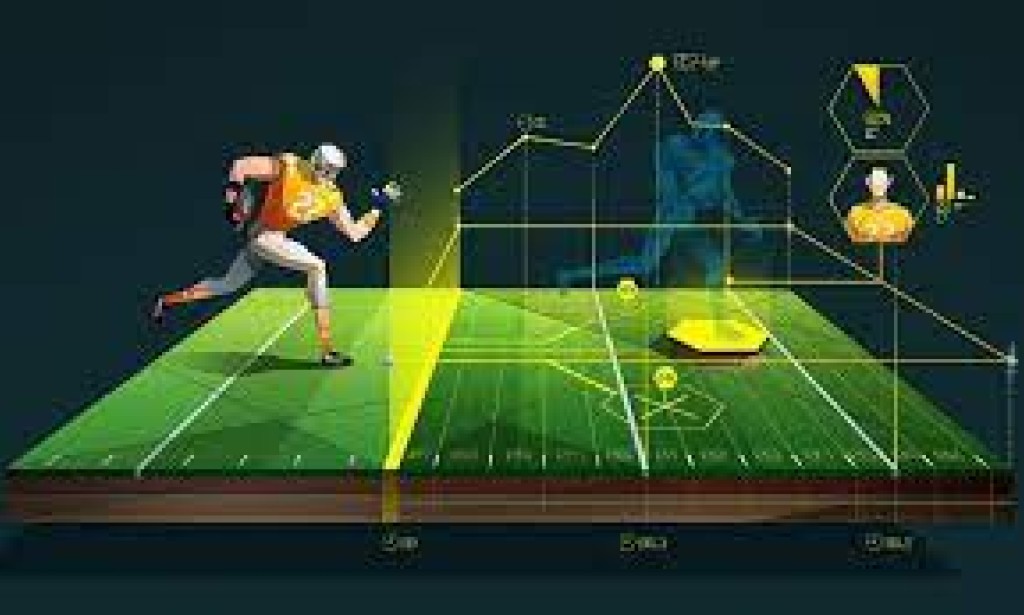The Evolution of Sports Technology: Innovations Shaping the Future of Athletics
In the world of sports, technology has become a game-changer. From tracking athletes' performance to enhancing the fan experience, technological innovations have revolutionized the way we engage with and participate in sports. In this article, we explore the evolution of sports technology and the groundbreaking innovations that are shaping the future of athletics.
Wearable Technology
Wearable technology has become synonymous with modern sports. Athletes now have access to a wide range of smart devices that track their performance, monitor vital signs, and provide valuable data for training and recovery. Some of the notable wearables include:
-
Fitness Trackers: These devices monitor steps, heart rate, and calories burned, helping athletes optimize their workouts.
-
Smartwatches: Beyond telling time, smartwatches can track distance, GPS location, and even provide real-time coaching feedback.
-
Biometric Sensors: Athletes can wear sensors that measure muscle activity, hydration levels, and even sleep quality to optimize their training.
-
Smart Apparel: Clothing with integrated sensors can monitor posture, breathing, and motion, offering insights into an athlete's form and technique.
Data Analytics and Performance Analysis
Data analytics has become a driving force in sports. Teams and athletes now rely on advanced software and algorithms to analyze performance data, make informed decisions, and gain a competitive edge. Key applications include:
-
Performance Metrics: Athletes can track their speed, power, agility, and endurance over time, helping them identify areas for improvement.
-
Game Analysis: Teams use video analysis software to dissect games, evaluate opponents, and devise strategies for success.
-
Injury Prevention: Data analytics can identify potential injury risks based on an athlete's movement patterns, allowing for preventive measures.
Virtual and Augmented Reality
Virtual reality (VR) and augmented reality (AR) are transforming athlete training, fan engagement, and even how sports are viewed:
-
Training Simulations: Athletes can practice in virtual environments that replicate game scenarios, helping them develop strategies and improve decision-making.
-
Fan Experience: VR and AR technologies offer fans immersive experiences, allowing them to feel like they're in the stadium or on the field.
-
Replay Analysis: Officials and coaches can use augmented reality overlays to review plays and make more accurate decisions.
Sports Medicine Advancements
Sports medicine has benefited immensely from technological advancements. Innovations include:
-
Biomechanics Analysis: High-speed cameras and motion capture systems provide in-depth insights into an athlete's movement and biomechanics, aiding in injury prevention and performance enhancement.
-
Rehabilitation Tools: Robotic exoskeletons and wearable devices assist in rehabilitation and recovery from injuries.
-
Performance Enhancement: Sports medicine professionals can use data-driven insights to optimize an athlete's training and recovery protocols.
Fan Engagement and Broadcasting
Technology has transformed the way fans experience sports:
-
Live Streaming: Fans can watch games and events from anywhere in the world through live streaming platforms.
-
Enhanced Viewing: Augmented reality overlays and multiple camera angles provide an immersive viewing experience.
-
Social Media Interaction: Fans can engage with their favorite teams and athletes in real time through social media platforms.
E-Sports and Competitive Gaming
E-sports, or competitive video gaming, has emerged as a significant industry. It leverages advanced technology for online gaming tournaments, streaming, and player analysis. E-sports teams and athletes are celebrated and recognized on a global scale.
Challenges and Ethical Considerations
While sports technology offers numerous advantages, it also raises ethical and privacy concerns. Issues like data security, performance-enhancing technologies, and fairness in competition are subjects of ongoing debate.
The Future of Sports Technology
The future of sports technology is incredibly exciting. Here are some trends and predictions:
-
Biometric Monitoring: Wearable biometric sensors will become even more advanced, offering real-time data on an athlete's health and performance.
-
AI Coaching: Artificial intelligence will provide personalized coaching feedback and training plans tailored to an athlete's unique needs.
-
Smart Stadiums: Stadiums will incorporate cutting-edge technology, such as augmented reality experiences and contactless payments for concessions.
-
Virtual Fan Engagement: Virtual reality will offer fans the ability to attend games from the comfort of their homes, creating new revenue streams for sports organizations.
Conclusion
Sports technology is in a constant state of evolution, pushing the boundaries of what's possible in athletics. From wearables and data analytics to virtual reality and e-sports, these innovations are enhancing performance, improving fan engagement, and changing the way we experience sports. As technology continues to advance, we can expect even more exciting developments that will shape the future of athletics in ways we can only imagine.






You must be logged in to post a comment.